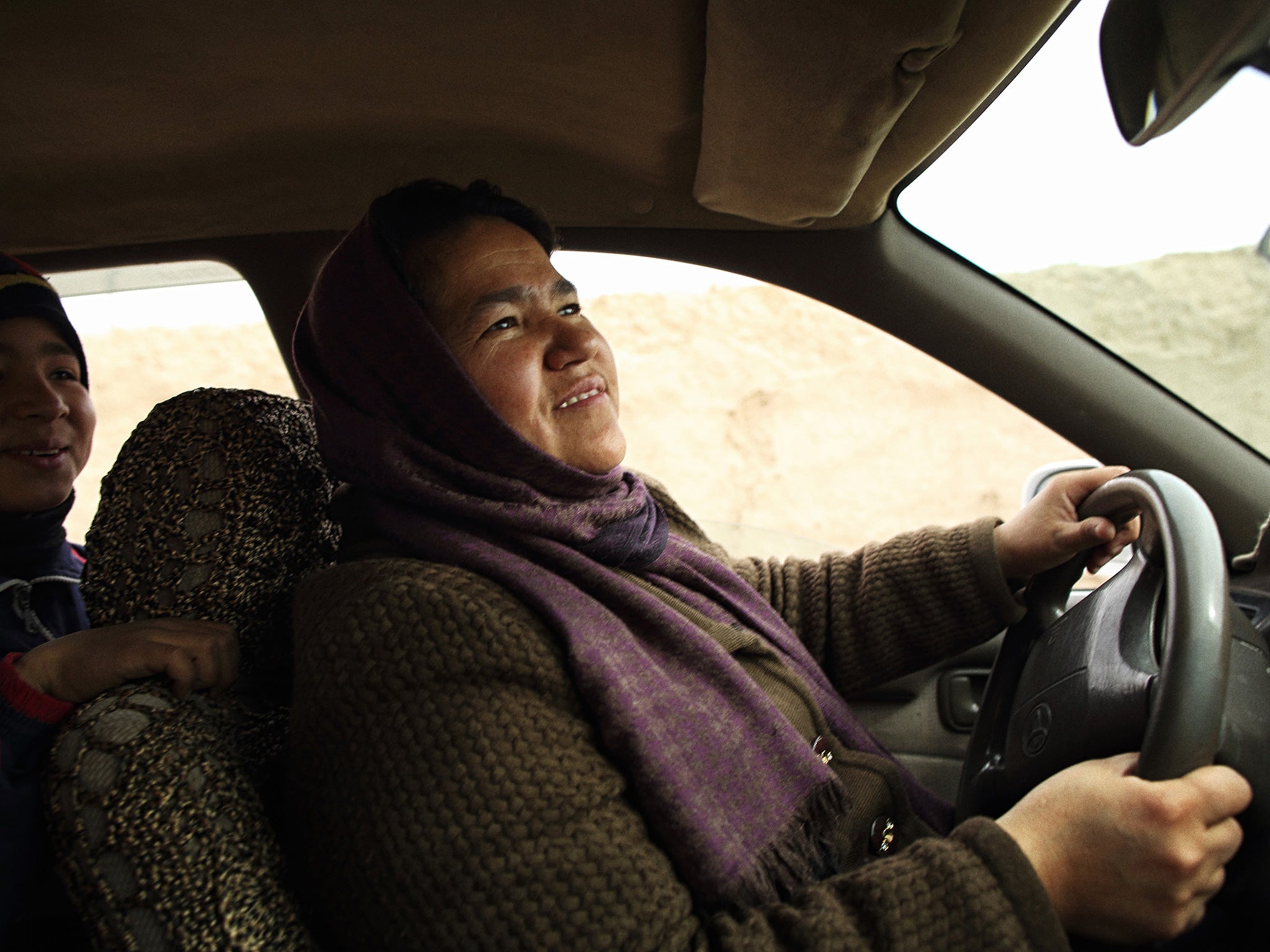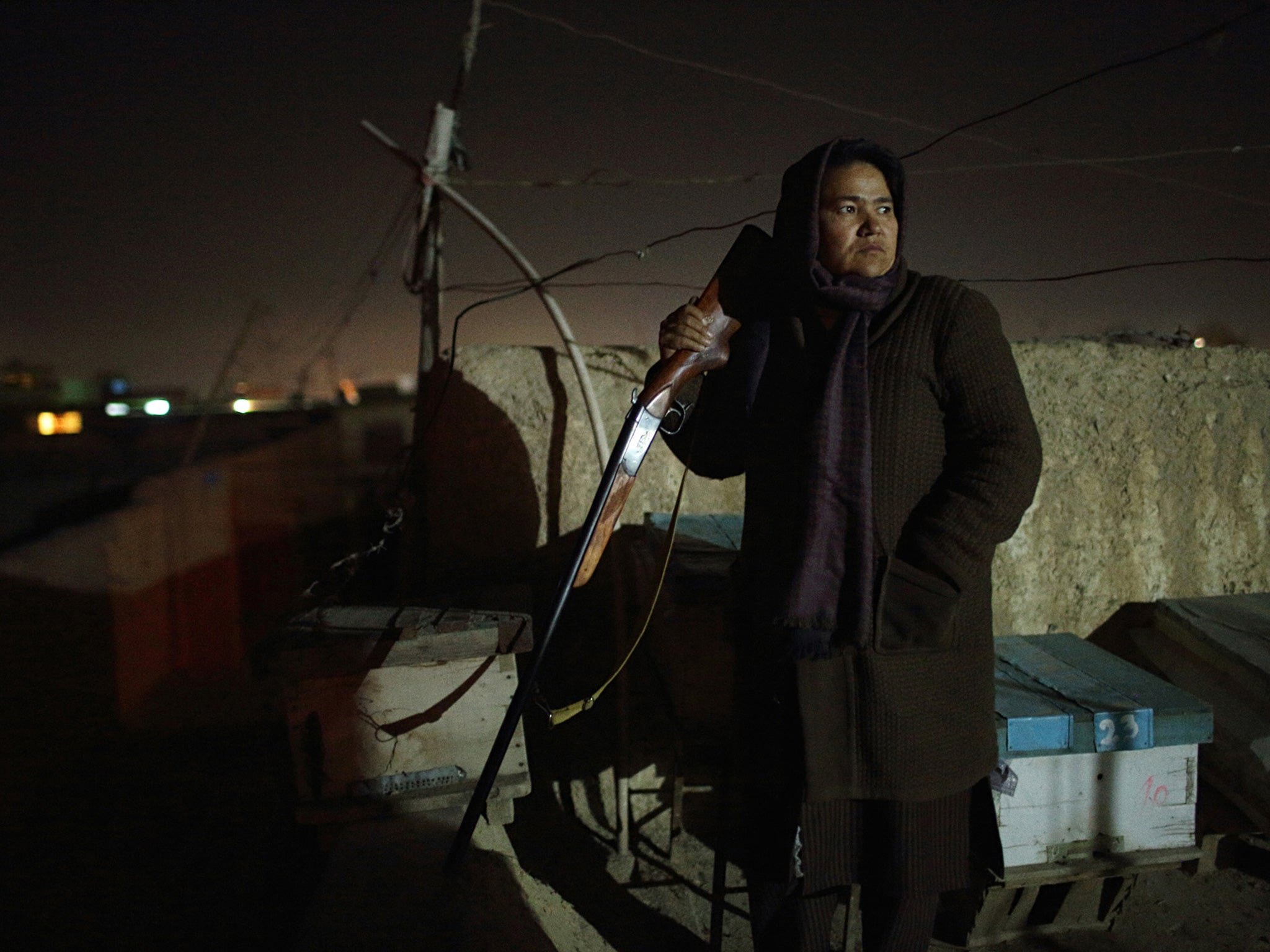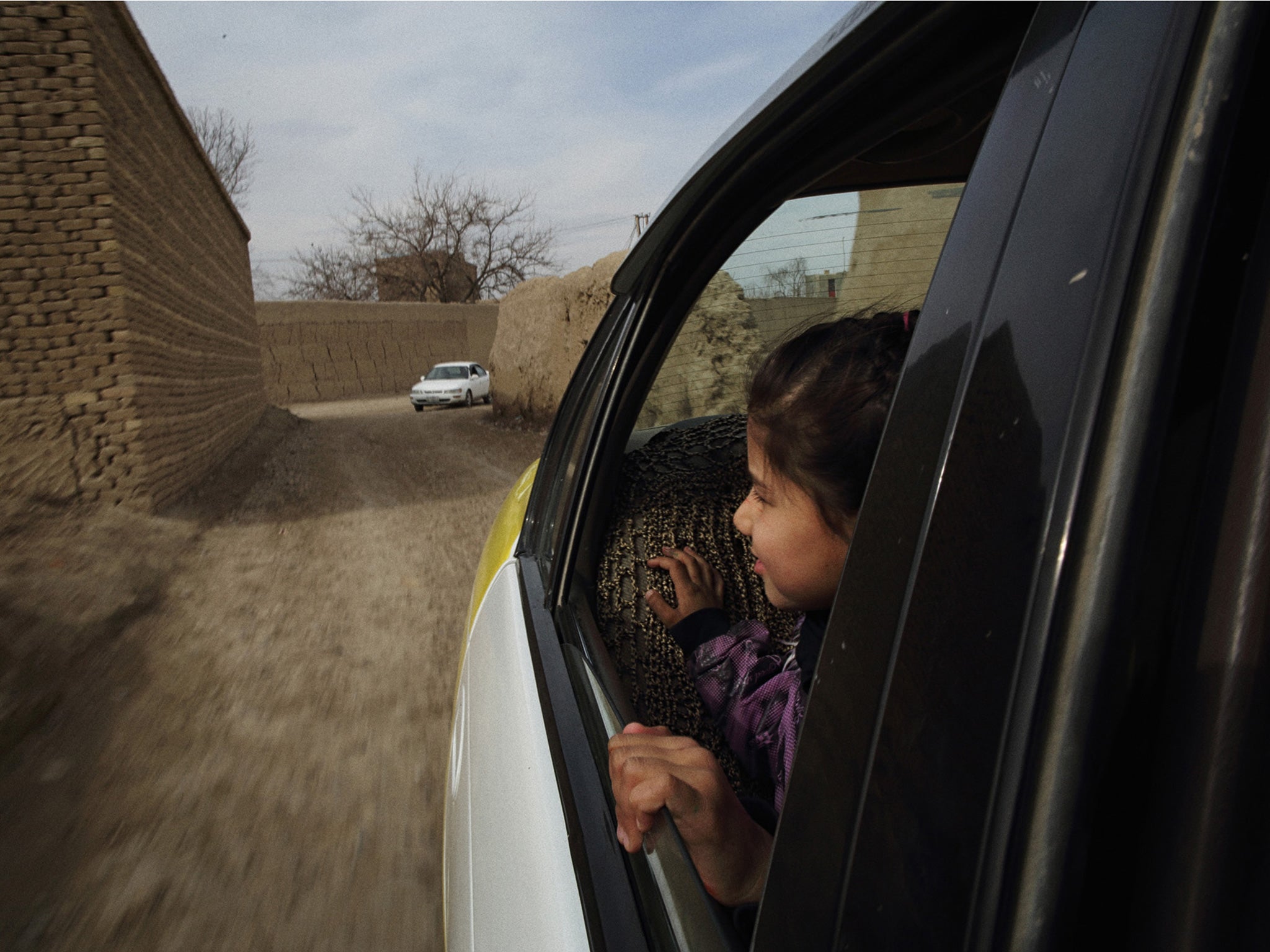Afghanistan's first female taxi driver: 'Why are you still driving? One day they will kill you'
As Afghanistan’s first – and only – female taxi driver, Sara Bahayi risks her life every day trying to change a deeply patriarchal society

Your support helps us to tell the story
From reproductive rights to climate change to Big Tech, The Independent is on the ground when the story is developing. Whether it's investigating the financials of Elon Musk's pro-Trump PAC or producing our latest documentary, 'The A Word', which shines a light on the American women fighting for reproductive rights, we know how important it is to parse out the facts from the messaging.
At such a critical moment in US history, we need reporters on the ground. Your donation allows us to keep sending journalists to speak to both sides of the story.
The Independent is trusted by Americans across the entire political spectrum. And unlike many other quality news outlets, we choose not to lock Americans out of our reporting and analysis with paywalls. We believe quality journalism should be available to everyone, paid for by those who can afford it.
Your support makes all the difference.At first glance, the Toyota Corolla looked like any other taxi bumping along the craggy street. In the back seat, three women wore blue burkas that covered their faces and bodies. In the front passenger seat, a bearded man sat stone-faced. The radio piped out a soulful Afghan song.
But the person behind the steering wheel – with coal-black hair, round face and purple scarf – has made taxi No. 12925 a revolution of sorts. Sara Bahayi is Afghanistan’s first female taxi driver in recent memory, and she is believed to be the only one actively working in the country. She’s 38, unmarried and outspoken. And in a highly patriarchal society, where women are considered second-class citizens and often abused, Ms Bahayi is brazenly upending gender roles.
Every day, she plies her trade in a business ruled by conservative men. She endures condescending looks, outright jeers, even threats to her life. Most men will not enter her taxi, believing that a woman should never drive for a man.
Yet she earns $10 (£6.50) to $20 a day, enough to provide for her 15 relatives, including her ailing mother. She relies on ferrying women shackled by traditions and fear, who vicariously live their dreams of freedom through her.

In her taxi, Ms Bahayi traverses streets and highways. One day, she convinced a man – who believed, like many Afghans, that Islam prohibits women from driving – that his beliefs were wrong. With every fare, Ms Bahayi says, she is determined to send a message to Afghan women: Get out of the house – earn money – don’t rely on men.
“How long should women depend on men’s income, taking the men’s orders?” she asked. “I want them to be independent.”
Improving the lives of women was a key goal after the Taliban regime collapsed in 2001. Far more girls today are in school. Afghanistan’s constitution guarantees equal rights for men and women. In practice, however, tribal traditions and religious strictures still subjugate most Afghan women and girls. Violence against women remains exceptionally high.
UN officials and women’s rights activists fear that the fragile gains women have made will be further eroded in light of the recent departure of most international forces, a resurgence of the Taliban, and expected reductions in international aid. Today, few role models for Afghan women exist. There are female ministers and lawmakers, as well as Rula Ghani, Afghanistan’s modern and sophisticated first lady. But most hail from privileged or liberal families. Ms Bahayi, though, lives a poor enclave in Mazar-e Sharif. She has neither an influential position nor a powerful family.
All she has is a hunting rifle she keeps loaded in case of intruders. Every day, she is among the rank and file, empowering local women with each fare. “She sends the message that men and women have equal rights,” said Arifa Saffar, head of the Afghan Women’s Network, a non-profit group helping women in Ms Bahayi’s Balkh province. “If a man can drive a taxi, why not a woman? She has shown the reality that a woman can drive just as well.”
Two years ago, Ms Bahayi took a class to acquire her licence to drive a taxi. There were 30 other students, all men. To escape the jokes and stares, she sat in the back. One day another student told her it was disgraceful for a woman to take a class with men. “If you don’t feel shame, I feel shame for you,” he said.
Two weeks later, she passed the road test and received her licence. Only nine of the men passed.
In the late 1990s, the Taliban killed her brother-in-law, and she was forced to care for her sister and her seven children. She worked for various aid agencies. A husband would never have allowed her to work, she said. “That’s why I am single,” she said.
The day after she received her taxi licence, her first client, a woman, was so stunned to see Ms Bahayi behind the wheel that she asked for a tour around Mazar-e Sharif. Along the way, children, and even some men, clapped and cheered. But most men refused to step into her cab. At the taxi stand, her male competitors tried to block her car or stop her potential passengers. Eventually, they got accustomed to seeing her around. But their disapproval persists.
But some men in Ms Bahayi’s neighbourhood see a layer of security for their family’s women. “Being a female taxi driver is like being a female doctor,” said Mohammad Akram, 50, a bearded man who was with three of his female relatives inside Ms Bahayi’s taxi on a recent day. “Our women feel comfortable with a woman driver. They feel safe.”

Safe. It’s a feeling that is vanishing for Ms Bahayi. As she has become well known in this province because of local media coverage, threats against her have grown.
“You want to start prostituting in your taxi, taking clients from one place to another,” one person, using a female name, wrote on Ms Bahayi’s Facebook page. “You are defaming the Afghan name.”
This month, intruders tried to enter her house, she said. Perhaps they were after her beehives, which produce honey she sells to supplement her income. Perhaps they despised her career.
The next day, she bought the rifle. Now she and her brothers take turns sitting on their roof at night, guarding their house.
“My mom doesn’t want me to be a taxi driver,” Ms Bahayi said. “One day, she asked me: ‘Why are you still driving? One day they will kill you.’ ”
Two months ago, some women came to the taxi stand, seeking to be driven to a funeral in a Taliban-infested area. All the male taxi drivers refused. So Ms Bahayi donned a man’s coat and sunglasses and drove the women. She knew she faced a beating, or worse, if the insurgents learned a female was behind the wheel.
She has inspired at least seven other women to learn how to drive, said Ms Saffar of the Afghan Women’s Network. All run private car services for female clients. Ms Bahayi hopes they will become taxi drivers someday.
Now, Ms Bahayi is negotiating with some men to become partners in a car dealership. She will acquire the dealership licence, and they will lease the place. Eventually, she said she plans to kick her partners out – and replace them with women. It will become, she hopes, Afghanistan’s first female-owned car dealership.
© The Washington Post
Join our commenting forum
Join thought-provoking conversations, follow other Independent readers and see their replies
Comments